1 1 Кафедра иностранных языков Милочкина С. И.
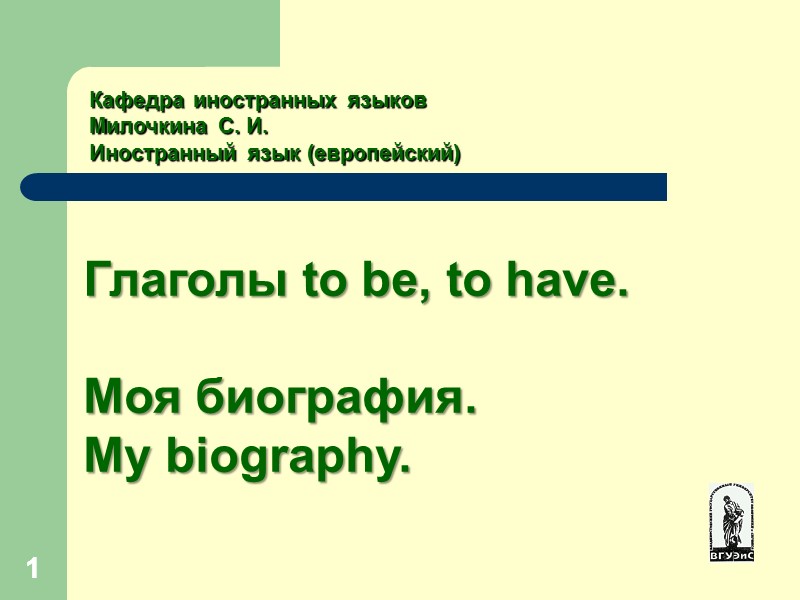
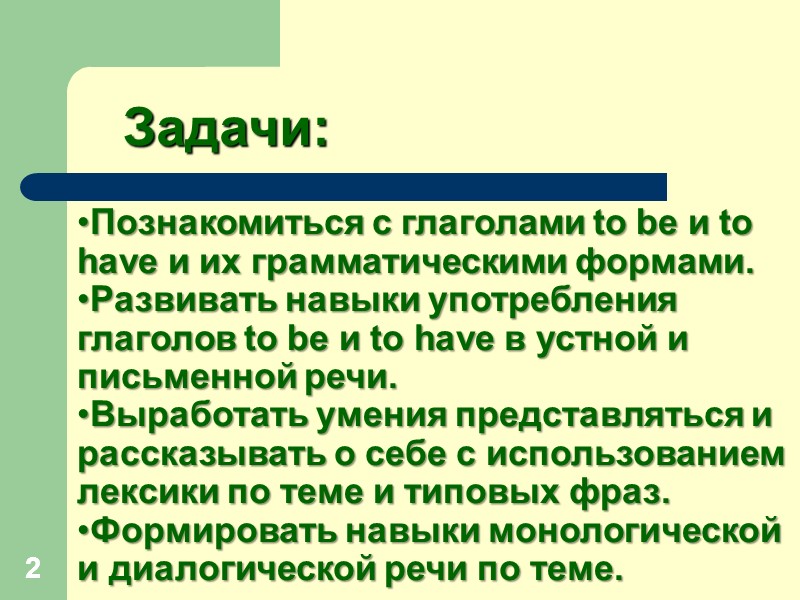
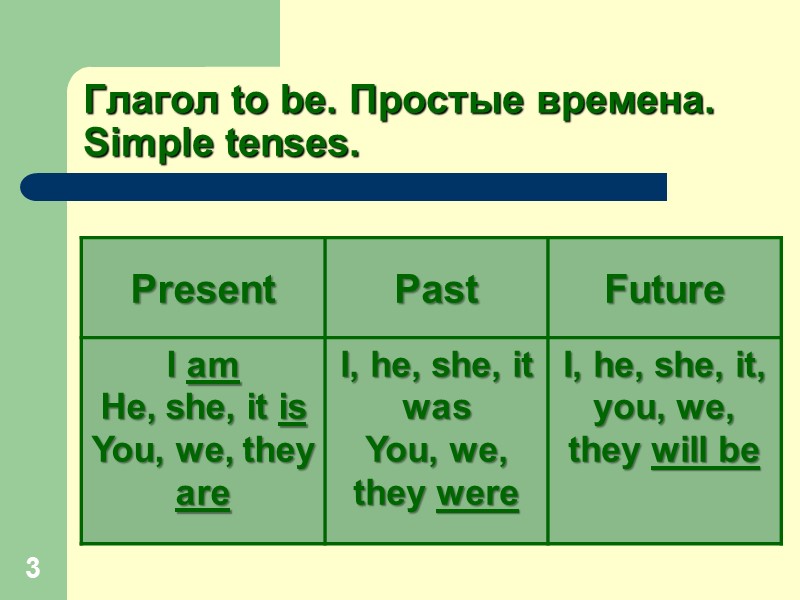
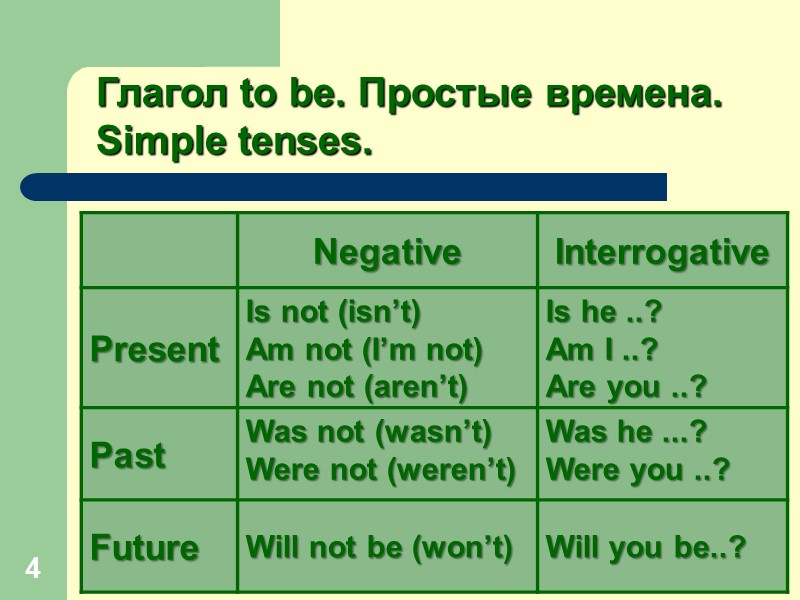
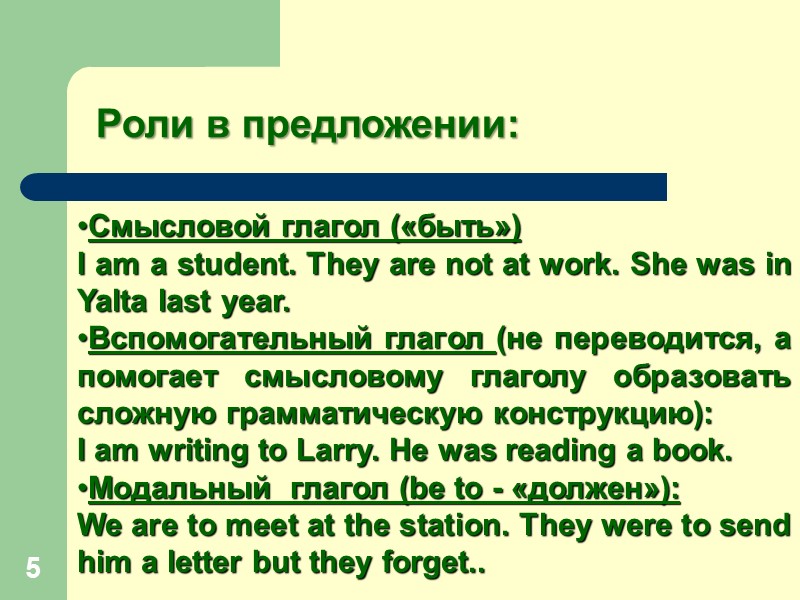
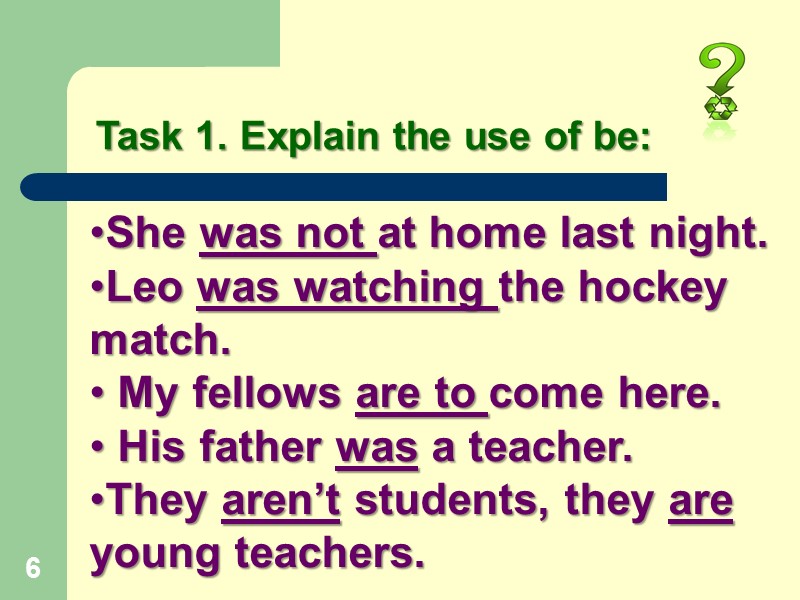
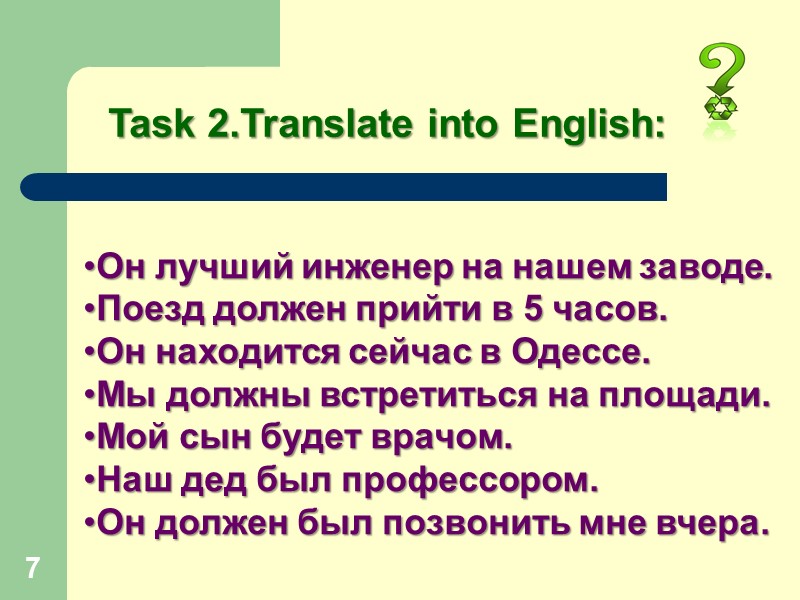
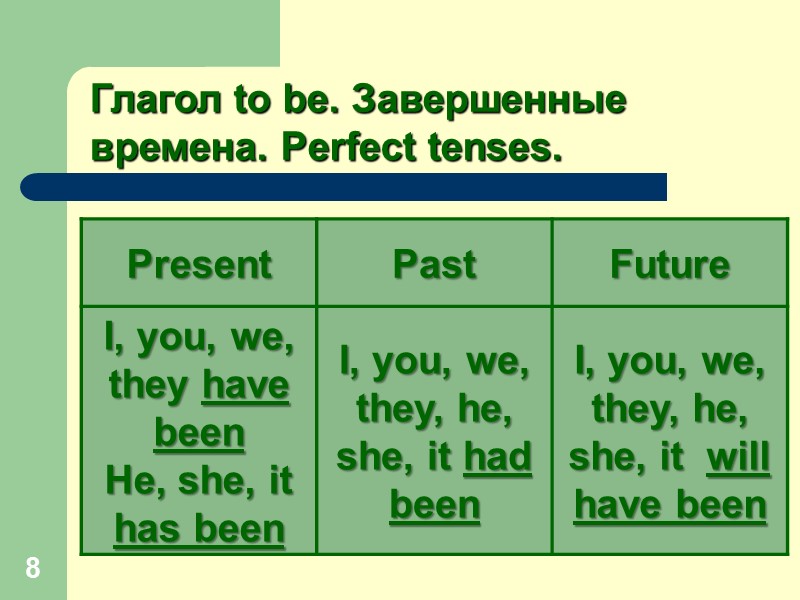
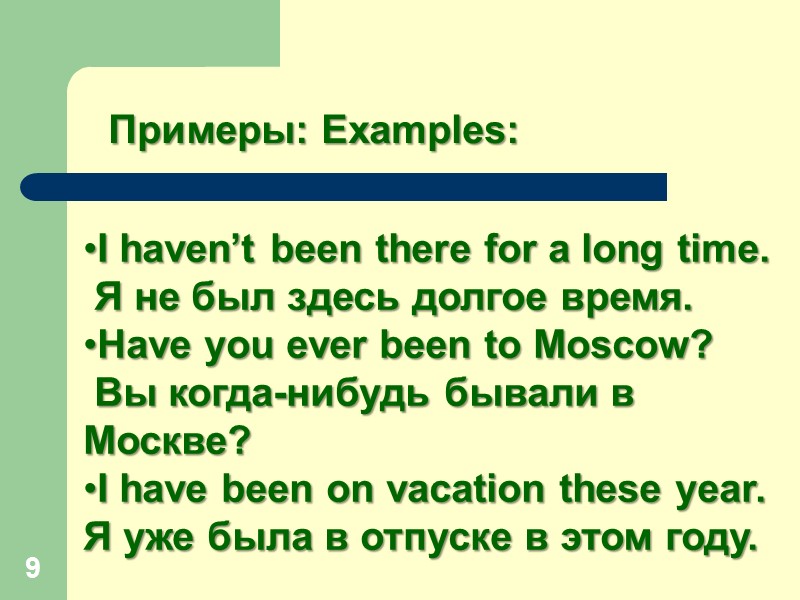
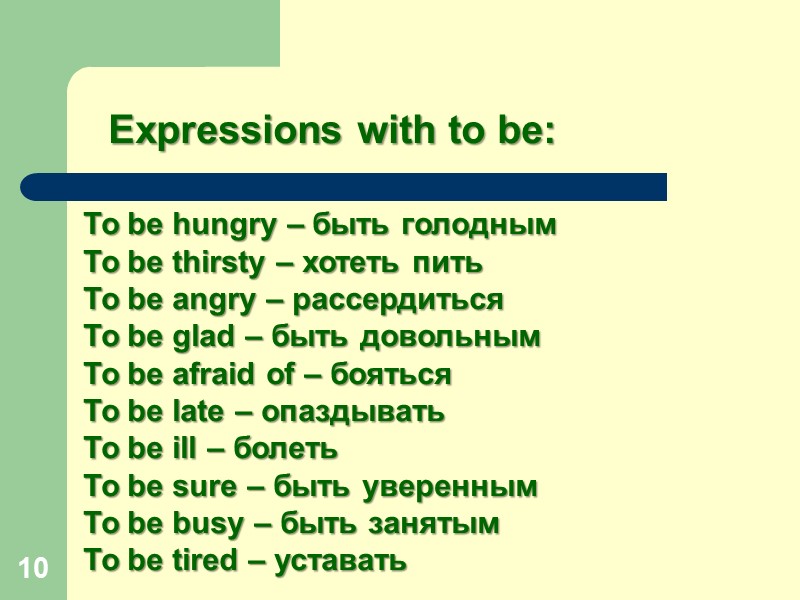
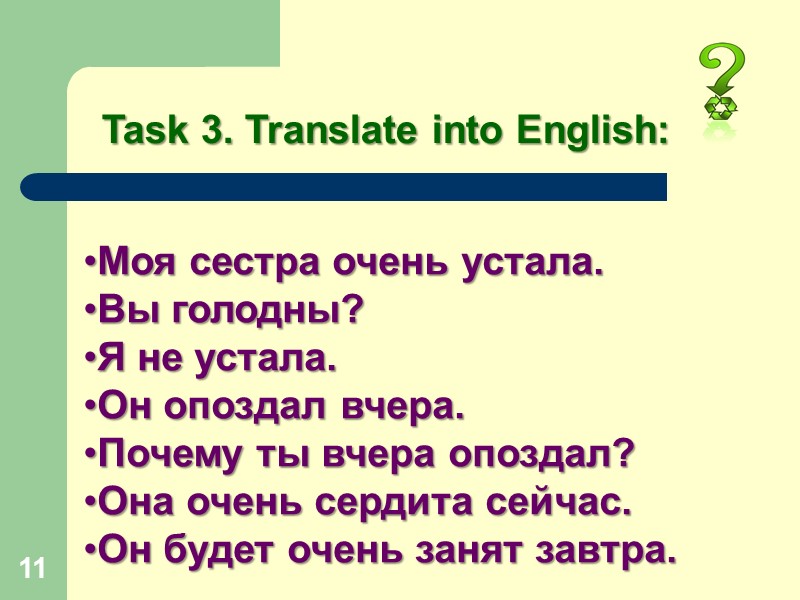
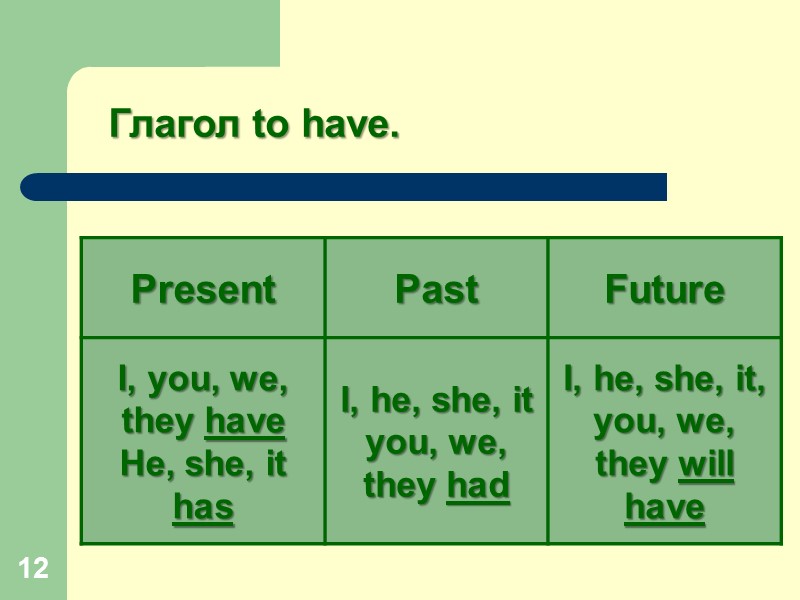
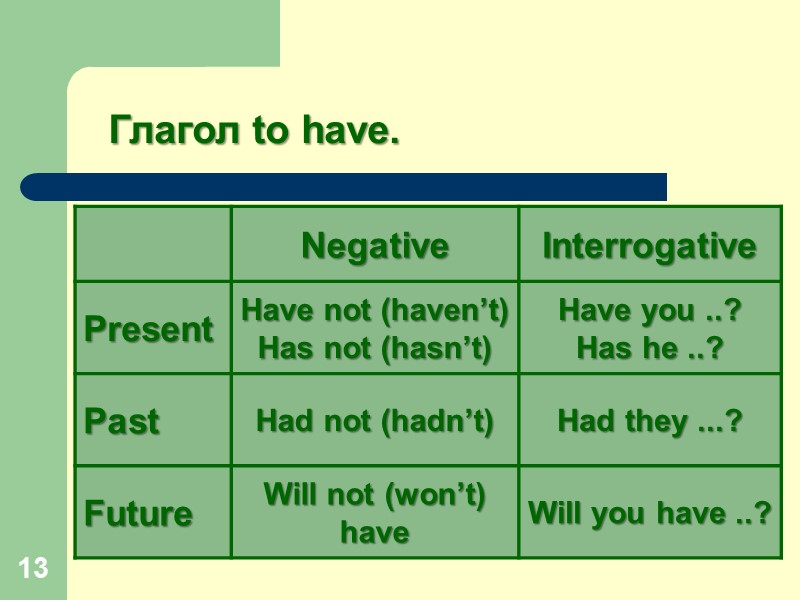
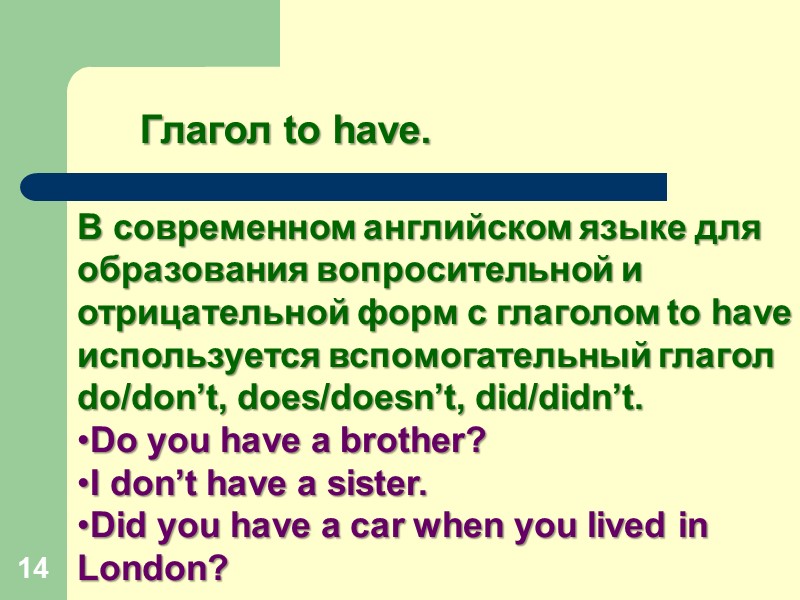
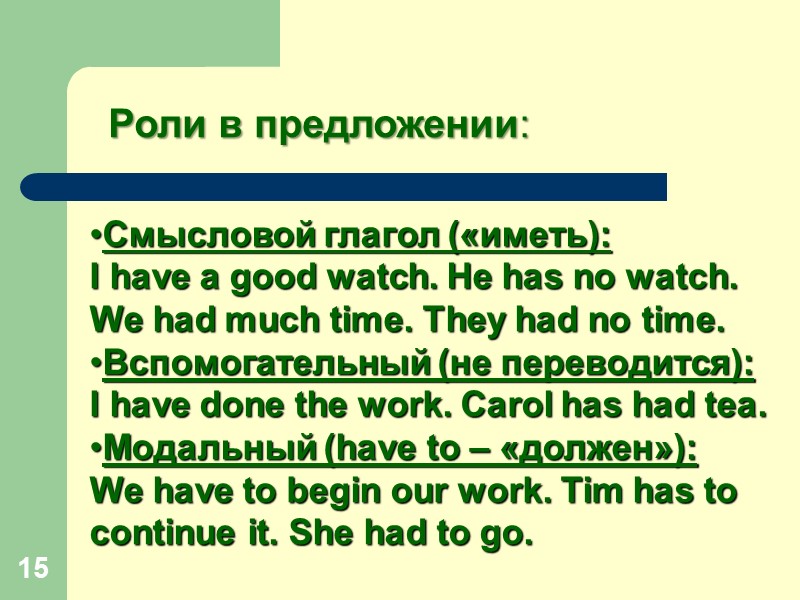
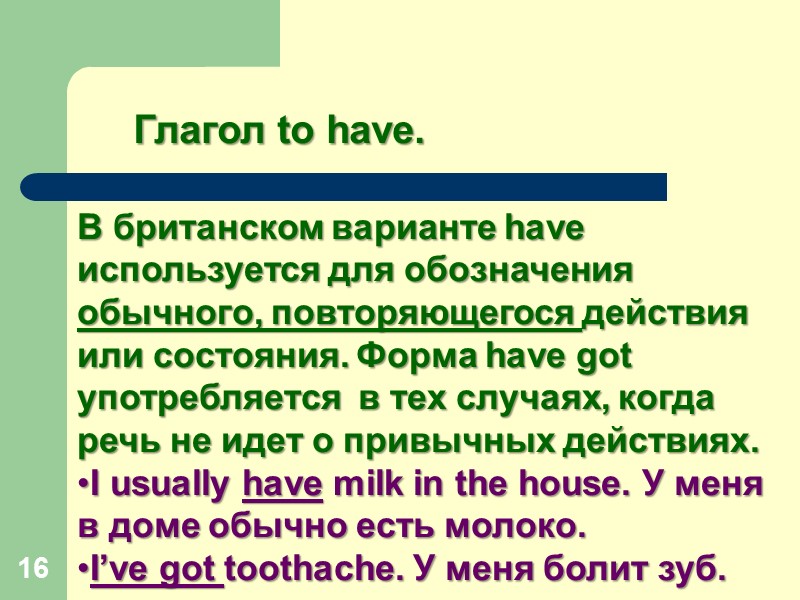
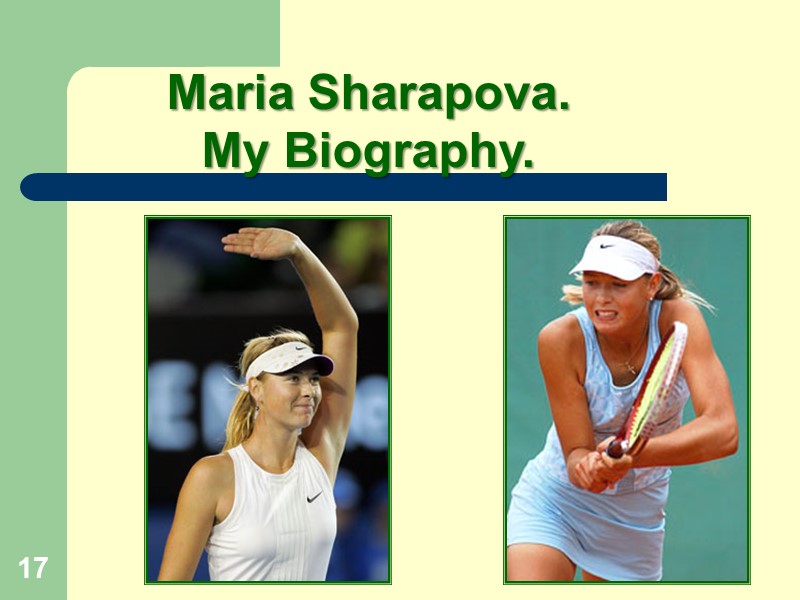
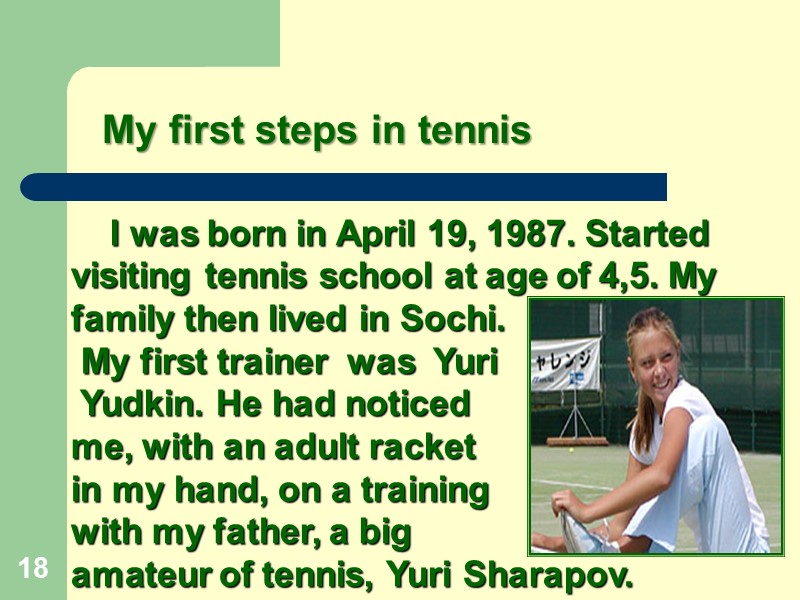
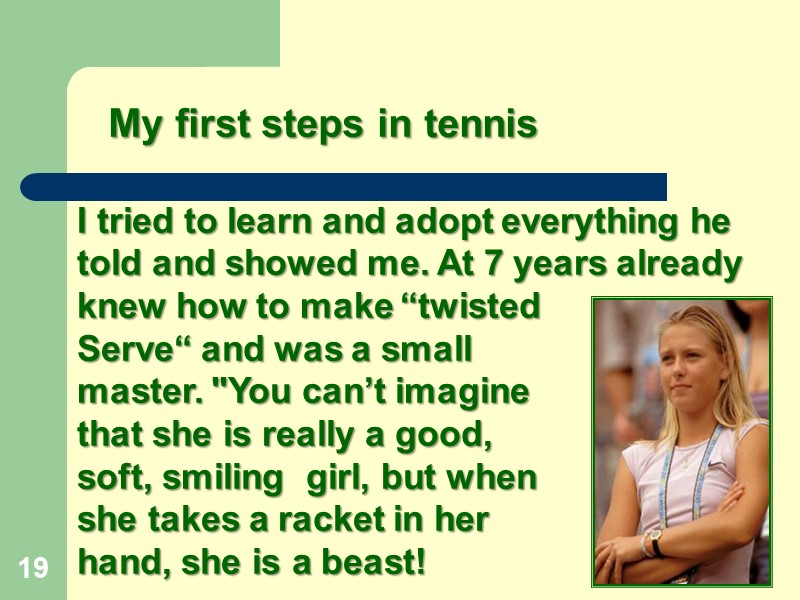
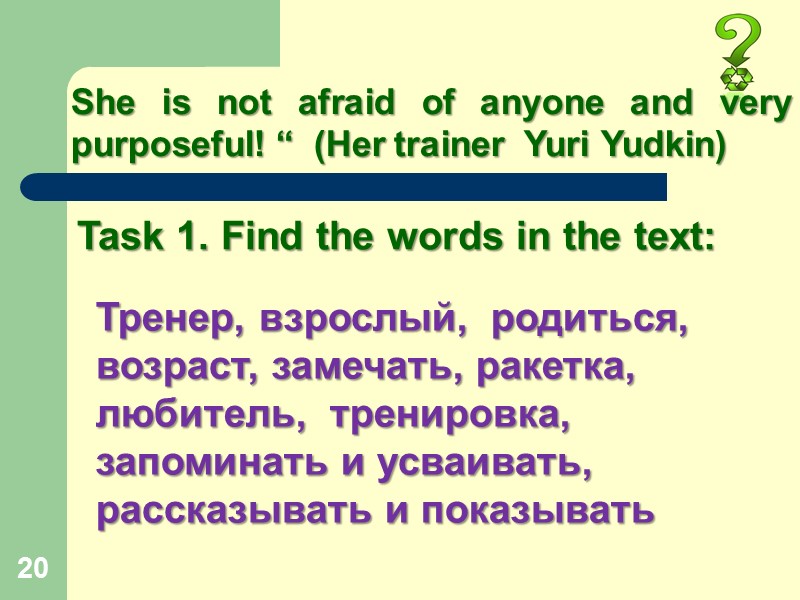
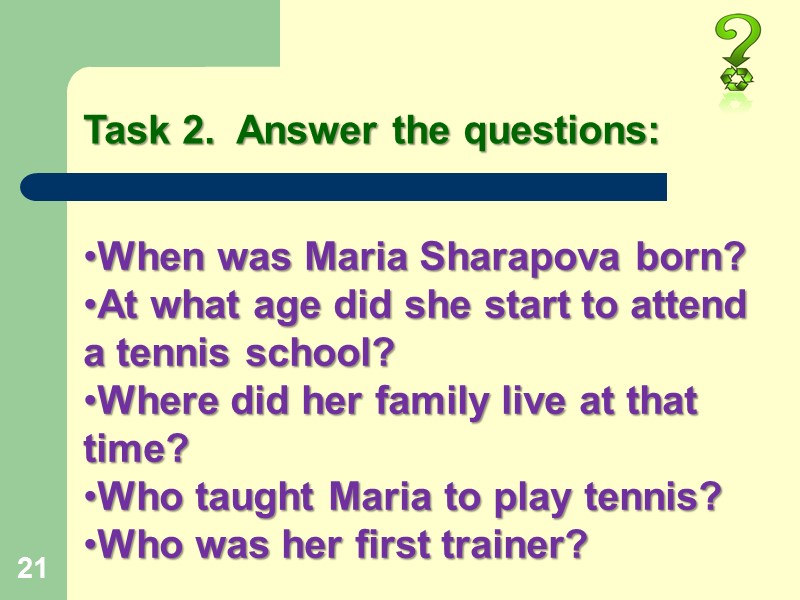
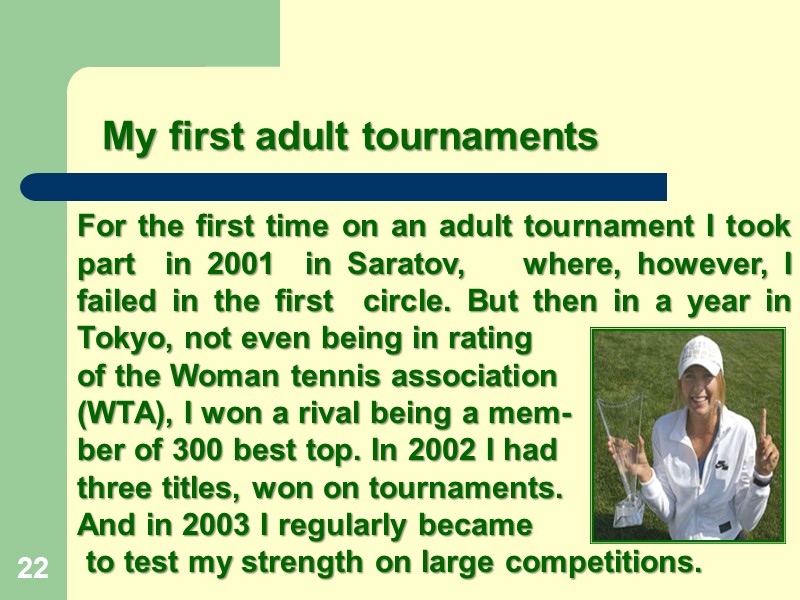
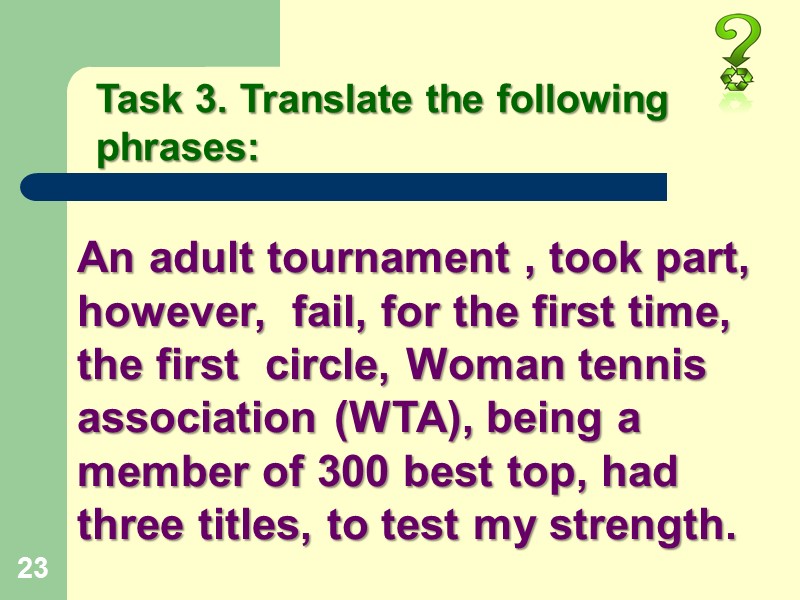
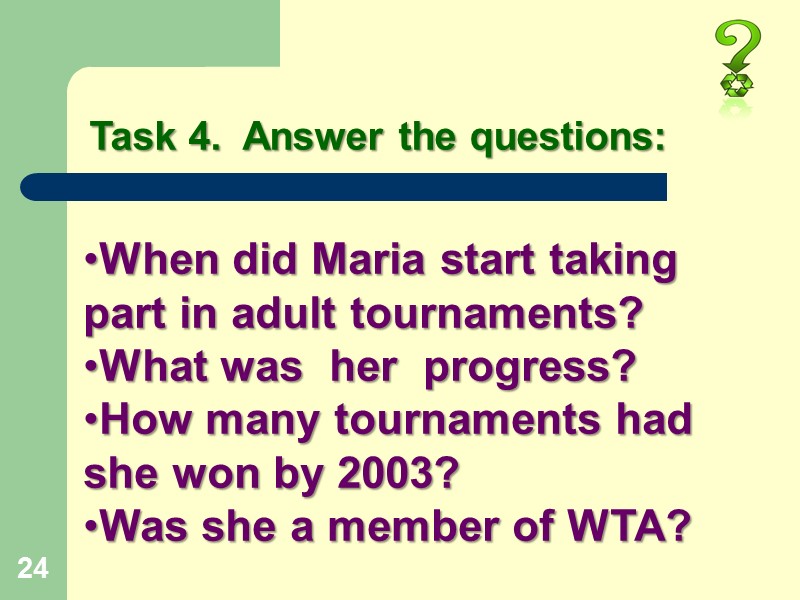
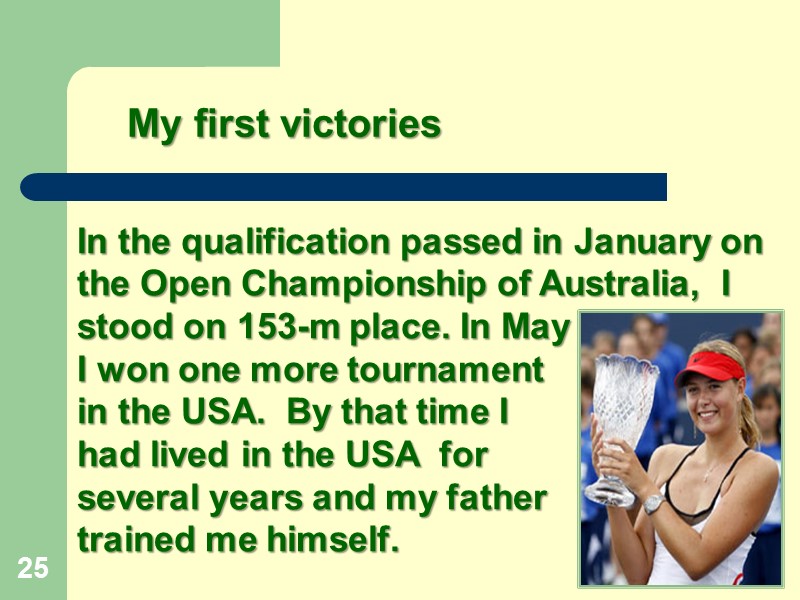
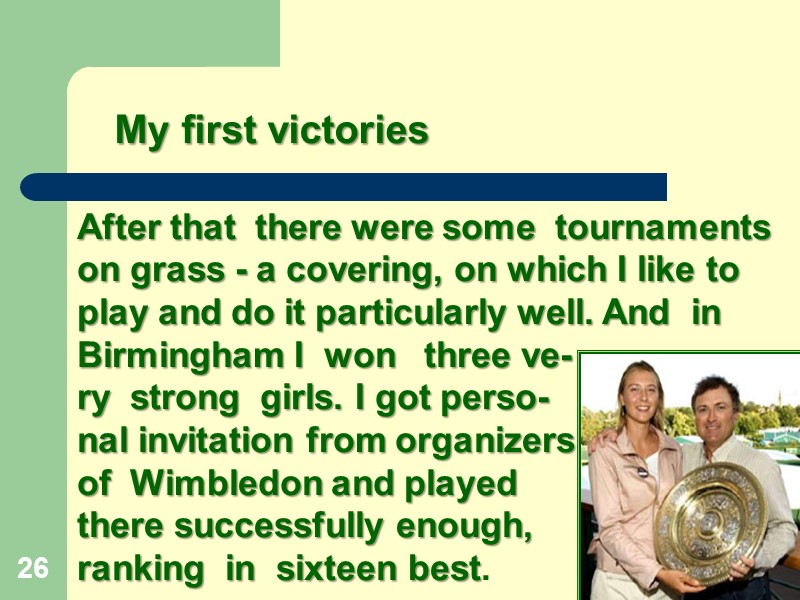
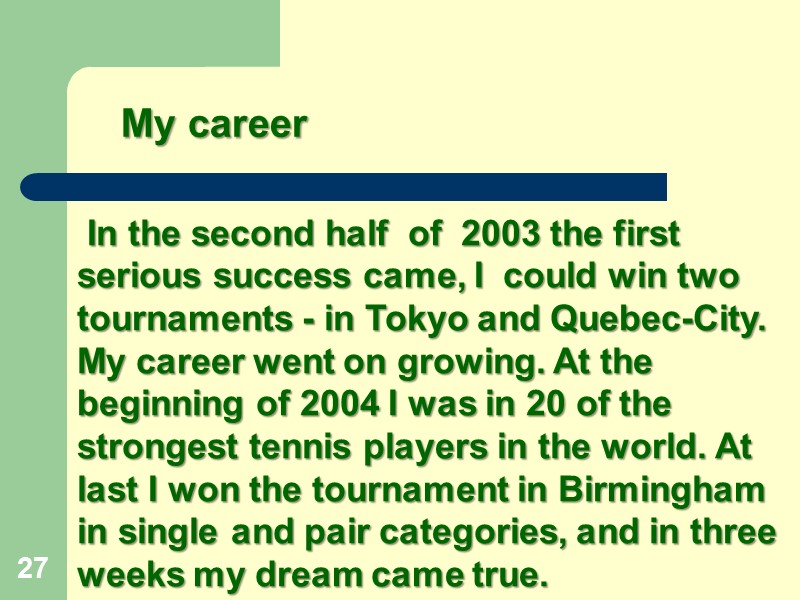
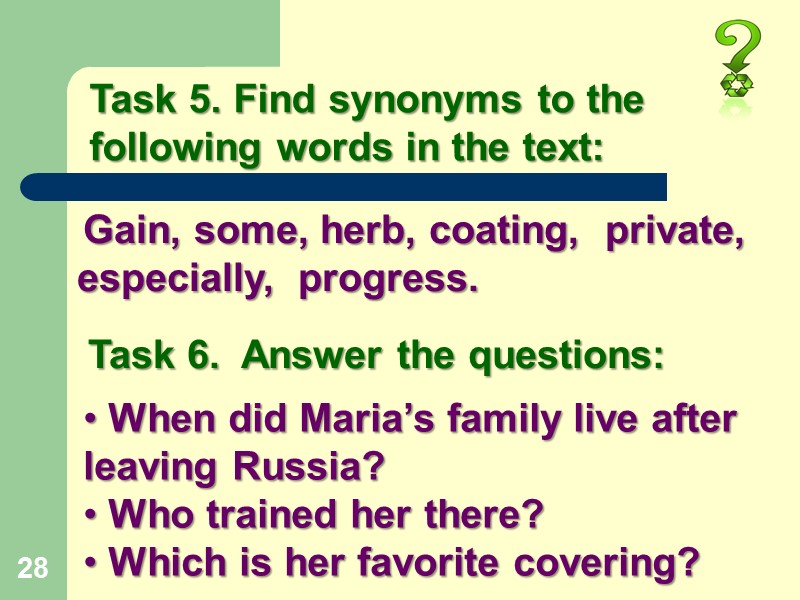
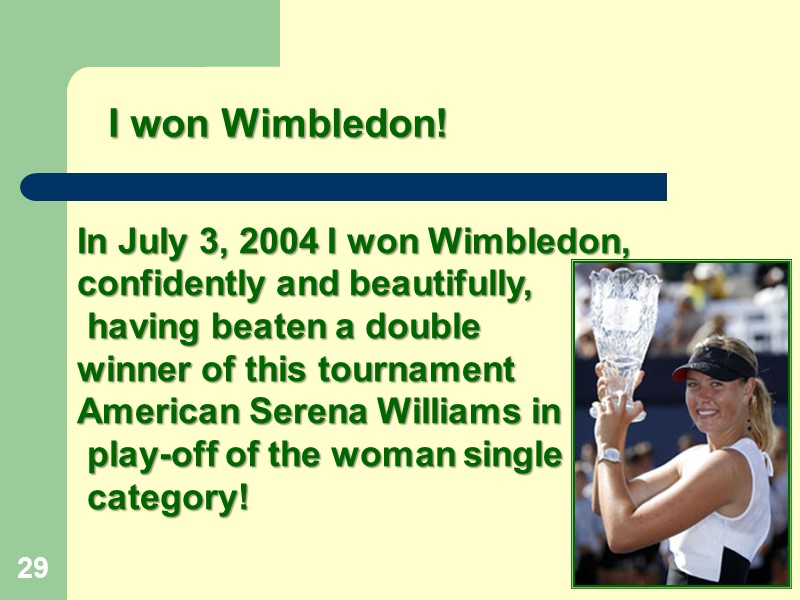
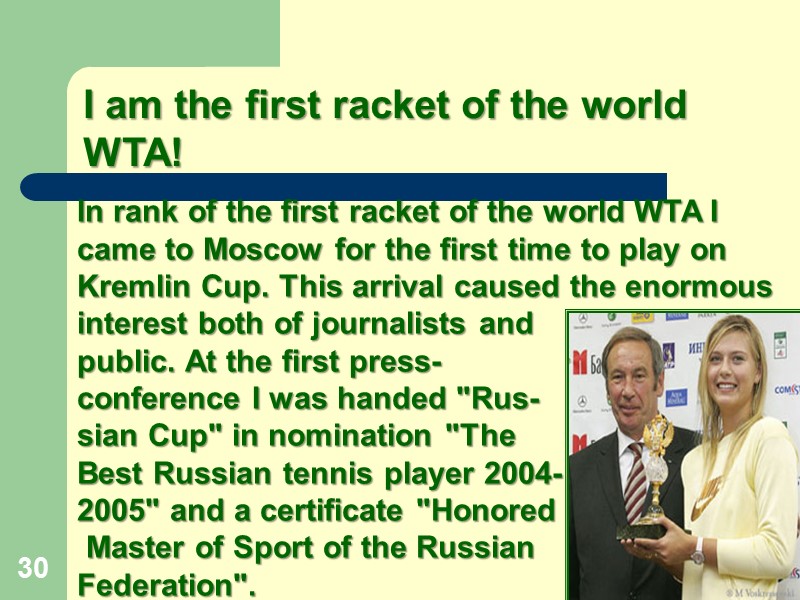
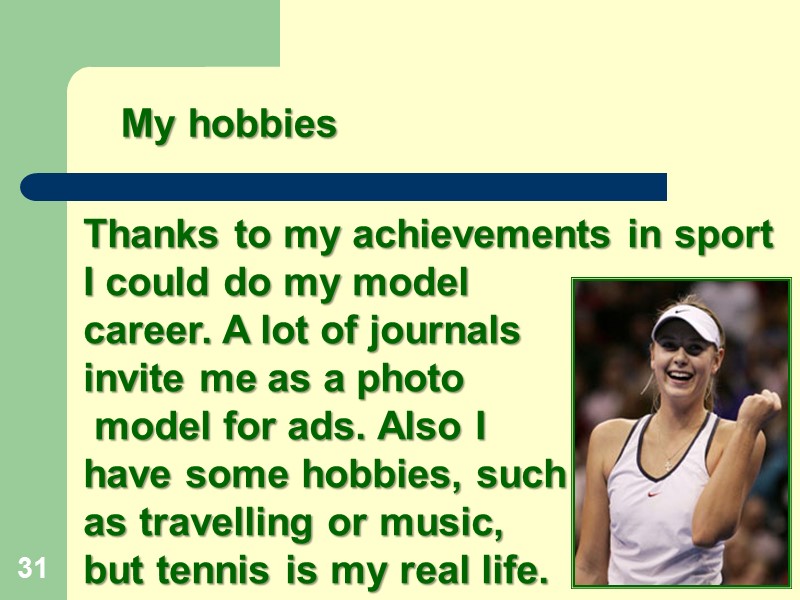
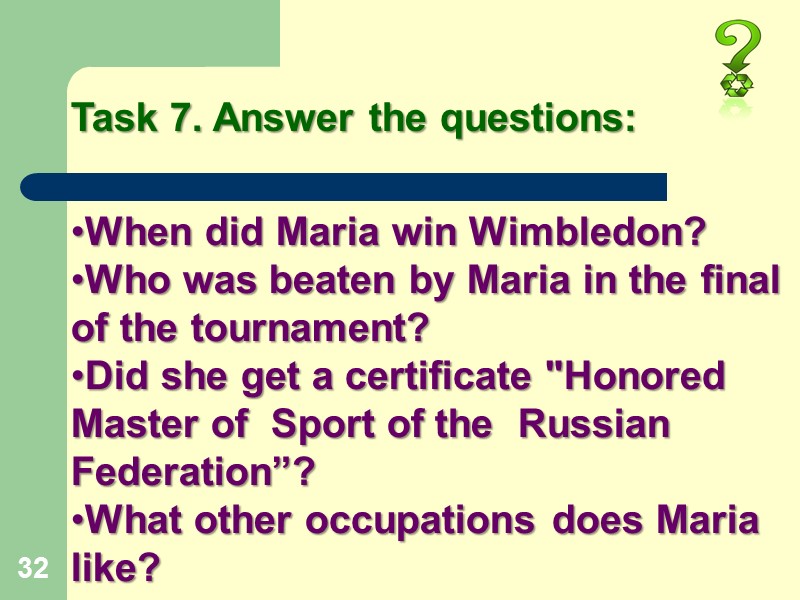
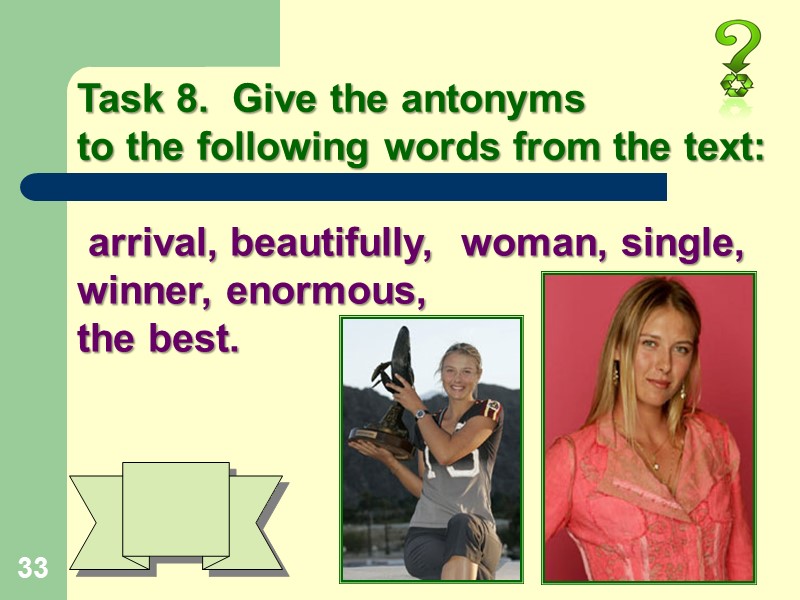
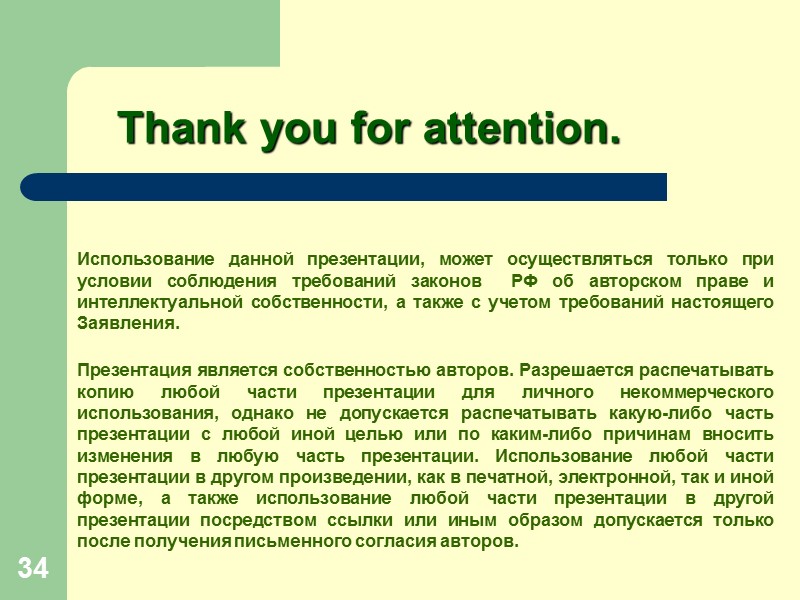
30168-2._my_biogaphy..ppt
- Количество слайдов: 34
 1 1 Кафедра иностранных языков Милочкина С. И. Иностранный язык (европейский) Глаголы to be, to have. Моя биография. My biography.
1 1 Кафедра иностранных языков Милочкина С. И. Иностранный язык (европейский) Глаголы to be, to have. Моя биография. My biography.
 2 2 Задачи: Познакомиться с глаголами to be и to have и их грамматическими формами. Развивать навыки употребления глаголов to be и to have в устной и письменной речи. Выработать умения представляться и рассказывать о себе с использованием лексики по теме и типовых фраз. Формировать навыки монологической и диалогической речи по теме.
2 2 Задачи: Познакомиться с глаголами to be и to have и их грамматическими формами. Развивать навыки употребления глаголов to be и to have в устной и письменной речи. Выработать умения представляться и рассказывать о себе с использованием лексики по теме и типовых фраз. Формировать навыки монологической и диалогической речи по теме.
 3 Глагол to be. Простые времена. Simple tenses.
3 Глагол to be. Простые времена. Simple tenses.
 4 Глагол to be. Простые времена. Simple tenses.
4 Глагол to be. Простые времена. Simple tenses.
 5 Роли в предложении: Смысловой глагол («быть») I am a student. They are not at work. She was in Yalta last year. Вспомогательный глагол (не переводится, а помогает смысловому глаголу образовать сложную грамматическую конструкцию): I am writing to Larry. He was reading a book. Модальный глагол (be to - «должен»): We are to meet at the station. They were to send him a letter but they forget..
5 Роли в предложении: Смысловой глагол («быть») I am a student. They are not at work. She was in Yalta last year. Вспомогательный глагол (не переводится, а помогает смысловому глаголу образовать сложную грамматическую конструкцию): I am writing to Larry. He was reading a book. Модальный глагол (be to - «должен»): We are to meet at the station. They were to send him a letter but they forget..
 6 Task 1. Explain the use of be: She was not at home last night. Leo was watching the hockey match. My fellows are to come here. His father was a teacher. They aren’t students, they are young teachers.
6 Task 1. Explain the use of be: She was not at home last night. Leo was watching the hockey match. My fellows are to come here. His father was a teacher. They aren’t students, they are young teachers.
 7 Task 2.Translate into English: Он лучший инженер на нашем заводе. Поезд должен прийти в 5 часов. Он находится сейчас в Одессе. Мы должны встретиться на площади. Мой сын будет врачом. Наш дед был профессором. Он должен был позвонить мне вчера.
7 Task 2.Translate into English: Он лучший инженер на нашем заводе. Поезд должен прийти в 5 часов. Он находится сейчас в Одессе. Мы должны встретиться на площади. Мой сын будет врачом. Наш дед был профессором. Он должен был позвонить мне вчера.
 8 Глагол to be. Завершенные времена. Perfect tenses.
8 Глагол to be. Завершенные времена. Perfect tenses.
 9 Примеры: Examples: I haven’t been there for a long time. Я не был здесь долгое время. Have you ever been to Moscow? Вы когда-нибудь бывали в Москве? I have been on vacation these year. Я уже была в отпуске в этом году.
9 Примеры: Examples: I haven’t been there for a long time. Я не был здесь долгое время. Have you ever been to Moscow? Вы когда-нибудь бывали в Москве? I have been on vacation these year. Я уже была в отпуске в этом году.
 10 Expressions with to be: To be hungry – быть голодным To be thirsty – хотеть пить To be angry – рассердиться To be glad – быть довольным To be afraid of – бояться To be late – опаздывать To be ill – болеть To be sure – быть уверенным To be busy – быть занятым To be tired – уставать
10 Expressions with to be: To be hungry – быть голодным To be thirsty – хотеть пить To be angry – рассердиться To be glad – быть довольным To be afraid of – бояться To be late – опаздывать To be ill – болеть To be sure – быть уверенным To be busy – быть занятым To be tired – уставать
 11 Task 3. Translate into English: Моя сестра очень устала. Вы голодны? Я не устала. Он опоздал вчера. Почему ты вчера опоздал? Она очень сердита сейчас. Он будет очень занят завтра.
11 Task 3. Translate into English: Моя сестра очень устала. Вы голодны? Я не устала. Он опоздал вчера. Почему ты вчера опоздал? Она очень сердита сейчас. Он будет очень занят завтра.
 12 Глагол to have.
12 Глагол to have.
 13 Глагол to have.
13 Глагол to have.
 14 Глагол to have. В современном английском языке для образования вопросительной и отрицательной форм с глаголом to have используется вспомогательный глагол do/don’t, does/doesn’t, did/didn’t. Do you have a brother? I don’t have a sister. Did you have a car when you lived in London?
14 Глагол to have. В современном английском языке для образования вопросительной и отрицательной форм с глаголом to have используется вспомогательный глагол do/don’t, does/doesn’t, did/didn’t. Do you have a brother? I don’t have a sister. Did you have a car when you lived in London?
 15 Роли в предложении: Смысловой глагол («иметь): I have a good watch. He has no watch. We had much time. They had no time. Вспомогательный (не переводится): I have done the work. Carol has had tea. Модальный (have to – «должен»): We have to begin our work. Tim has to continue it. She had to go.
15 Роли в предложении: Смысловой глагол («иметь): I have a good watch. He has no watch. We had much time. They had no time. Вспомогательный (не переводится): I have done the work. Carol has had tea. Модальный (have to – «должен»): We have to begin our work. Tim has to continue it. She had to go.
 16 Глагол to have. В британском варианте have используется для обозначения обычного, повторяющегося действия или состояния. Форма have got употребляется в тех случаях, когда речь не идет о привычных действиях. I usually have milk in the house. У меня в доме обычно есть молоко. I’ve got toothache. У меня болит зуб.
16 Глагол to have. В британском варианте have используется для обозначения обычного, повторяющегося действия или состояния. Форма have got употребляется в тех случаях, когда речь не идет о привычных действиях. I usually have milk in the house. У меня в доме обычно есть молоко. I’ve got toothache. У меня болит зуб.
 17 Maria Sharapova. My Biography.
17 Maria Sharapova. My Biography.
 18 I was born in April 19, 1987. Started visiting tennis school at age of 4,5. My family then lived in Sochi. My first trainer was Yuri Yudkin. He had noticed me, with an adult racket in my hand, on a training with my father, a big amateur of tennis, Yuri Sharapov. My first steps in tennis
18 I was born in April 19, 1987. Started visiting tennis school at age of 4,5. My family then lived in Sochi. My first trainer was Yuri Yudkin. He had noticed me, with an adult racket in my hand, on a training with my father, a big amateur of tennis, Yuri Sharapov. My first steps in tennis
 19 I tried to learn and adopt everything he told and showed me. At 7 years already knew how to make “twisted Serve“ and was a small master. "You can’t imagine that she is really a good, soft, smiling girl, but when she takes a racket in her hand, she is a beast! My first steps in tennis
19 I tried to learn and adopt everything he told and showed me. At 7 years already knew how to make “twisted Serve“ and was a small master. "You can’t imagine that she is really a good, soft, smiling girl, but when she takes a racket in her hand, she is a beast! My first steps in tennis
 20 Task 1. Find the words in the text: She is not afraid of anyone and very purposeful! “ (Her trainer Yuri Yudkin) Тренер, взрослый, родиться, возраст, замечать, ракетка, любитель, тренировка, запоминать и усваивать, рассказывать и показывать
20 Task 1. Find the words in the text: She is not afraid of anyone and very purposeful! “ (Her trainer Yuri Yudkin) Тренер, взрослый, родиться, возраст, замечать, ракетка, любитель, тренировка, запоминать и усваивать, рассказывать и показывать
 21 Task 2. Answer the questions: When was Maria Sharapova born? At what age did she start to attend a tennis school? Where did her family live at that time? Who taught Maria to play tennis? Who was her first trainer?
21 Task 2. Answer the questions: When was Maria Sharapova born? At what age did she start to attend a tennis school? Where did her family live at that time? Who taught Maria to play tennis? Who was her first trainer?
 For the first time on an adult tournament I took part in 2001 in Saratov, where, however, I failed in the first circle. But then in a year in Tokyo, not even being in rating of the Woman tennis association (WTA), I won a rival being a mem- ber of 300 best top. In 2002 I had three titles, won on tournaments. And in 2003 I regularly became to test my strength on large competitions. 22 My first adult tournaments
For the first time on an adult tournament I took part in 2001 in Saratov, where, however, I failed in the first circle. But then in a year in Tokyo, not even being in rating of the Woman tennis association (WTA), I won a rival being a mem- ber of 300 best top. In 2002 I had three titles, won on tournaments. And in 2003 I regularly became to test my strength on large competitions. 22 My first adult tournaments
 23 Task 3. Translate the following phrases: An adult tournament , took part, however, fail, for the first time, the first circle, Woman tennis association (WTA), being a member of 300 best top, had three titles, to test my strength.
23 Task 3. Translate the following phrases: An adult tournament , took part, however, fail, for the first time, the first circle, Woman tennis association (WTA), being a member of 300 best top, had three titles, to test my strength.
 24 Task 4. Answer the questions: When did Maria start taking part in adult tournaments? What was her progress? How many tournaments had she won by 2003? Was she a member of WTA?
24 Task 4. Answer the questions: When did Maria start taking part in adult tournaments? What was her progress? How many tournaments had she won by 2003? Was she a member of WTA?
 25 In the qualification passed in January on the Open Championship of Australia, I stood on 153-m place. In May I won one more tournament in the USA. By that time I had lived in the USA for several years and my father trained me himself. My first victories
25 In the qualification passed in January on the Open Championship of Australia, I stood on 153-m place. In May I won one more tournament in the USA. By that time I had lived in the USA for several years and my father trained me himself. My first victories
 26 After that there were some tournaments on grass - a covering, on which I like to play and do it particularly well. And in Birmingham I won three ve- ry strong girls. I got perso- nal invitation from organizers of Wimbledon and played there successfully enough, ranking in sixteen best. My first victories
26 After that there were some tournaments on grass - a covering, on which I like to play and do it particularly well. And in Birmingham I won three ve- ry strong girls. I got perso- nal invitation from organizers of Wimbledon and played there successfully enough, ranking in sixteen best. My first victories
 27 In the second half of 2003 the first serious success came, I could win two tournaments - in Tokyo and Quebec-City. My career went on growing. At the beginning of 2004 I was in 20 of the strongest tennis players in the world. At last I won the tournament in Birmingham in single and pair categories, and in three weeks my dream came true. My career
27 In the second half of 2003 the first serious success came, I could win two tournaments - in Tokyo and Quebec-City. My career went on growing. At the beginning of 2004 I was in 20 of the strongest tennis players in the world. At last I won the tournament in Birmingham in single and pair categories, and in three weeks my dream came true. My career
 28 Task 5. Find synonyms to the following words in the text: Gain, some, herb, coating, private, especially, progress. Task 6. Answer the questions: When did Maria’s family live after leaving Russia? Who trained her there? Which is her favorite covering?
28 Task 5. Find synonyms to the following words in the text: Gain, some, herb, coating, private, especially, progress. Task 6. Answer the questions: When did Maria’s family live after leaving Russia? Who trained her there? Which is her favorite covering?
 29 In July 3, 2004 I won Wimbledon, confidently and beautifully, having beaten a double winner of this tournament American Serena Williams in play-off of the woman single category! I won Wimbledon!
29 In July 3, 2004 I won Wimbledon, confidently and beautifully, having beaten a double winner of this tournament American Serena Williams in play-off of the woman single category! I won Wimbledon!
 30 In rank of the first racket of the world WTA I came to Moscow for the first time to play on Kremlin Cup. This arrival caused the enormous interest both of journalists and public. At the first press- conference I was handed "Rus- sian Cup" in nomination "The Best Russian tennis player 2004- 2005" and a certificate "Honored Master of Sport of the Russian Federation". I am the first racket of the world WTA!
30 In rank of the first racket of the world WTA I came to Moscow for the first time to play on Kremlin Cup. This arrival caused the enormous interest both of journalists and public. At the first press- conference I was handed "Rus- sian Cup" in nomination "The Best Russian tennis player 2004- 2005" and a certificate "Honored Master of Sport of the Russian Federation". I am the first racket of the world WTA!
 31 Thanks to my achievements in sport I could do my model career. A lot of journals invite me as a photo model for ads. Also I have some hobbies, such as travelling or music, but tennis is my real life. My hobbies
31 Thanks to my achievements in sport I could do my model career. A lot of journals invite me as a photo model for ads. Also I have some hobbies, such as travelling or music, but tennis is my real life. My hobbies
 32 Task 7. Answer the questions: When did Maria win Wimbledon? Who was beaten by Maria in the final of the tournament? Did she get a certificate "Honored Master of Sport of the Russian Federation”? What other occupations does Maria like?
32 Task 7. Answer the questions: When did Maria win Wimbledon? Who was beaten by Maria in the final of the tournament? Did she get a certificate "Honored Master of Sport of the Russian Federation”? What other occupations does Maria like?
 33 Task 8. Give the antonyms to the following words from the text: arrival, beautifully, woman, single, winner, enormous, the best.
33 Task 8. Give the antonyms to the following words from the text: arrival, beautifully, woman, single, winner, enormous, the best.
 34 Thank you for attention. Использование данной презентации, может осуществляться только при условии соблюдения требований законов РФ об авторском праве и интеллектуальной собственности, а также с учетом требований настоящего Заявления. Презентация является собственностью авторов. Разрешается распечатывать копию любой части презентации для личного некоммерческого использования, однако не допускается распечатывать какую-либо часть презентации с любой иной целью или по каким-либо причинам вносить изменения в любую часть презентации. Использование любой части презентации в другом произведении, как в печатной, электронной, так и иной форме, а также использование любой части презентации в другой презентации посредством ссылки или иным образом допускается только после получения письменного согласия авторов.
34 Thank you for attention. Использование данной презентации, может осуществляться только при условии соблюдения требований законов РФ об авторском праве и интеллектуальной собственности, а также с учетом требований настоящего Заявления. Презентация является собственностью авторов. Разрешается распечатывать копию любой части презентации для личного некоммерческого использования, однако не допускается распечатывать какую-либо часть презентации с любой иной целью или по каким-либо причинам вносить изменения в любую часть презентации. Использование любой части презентации в другом произведении, как в печатной, электронной, так и иной форме, а также использование любой части презентации в другой презентации посредством ссылки или иным образом допускается только после получения письменного согласия авторов.
